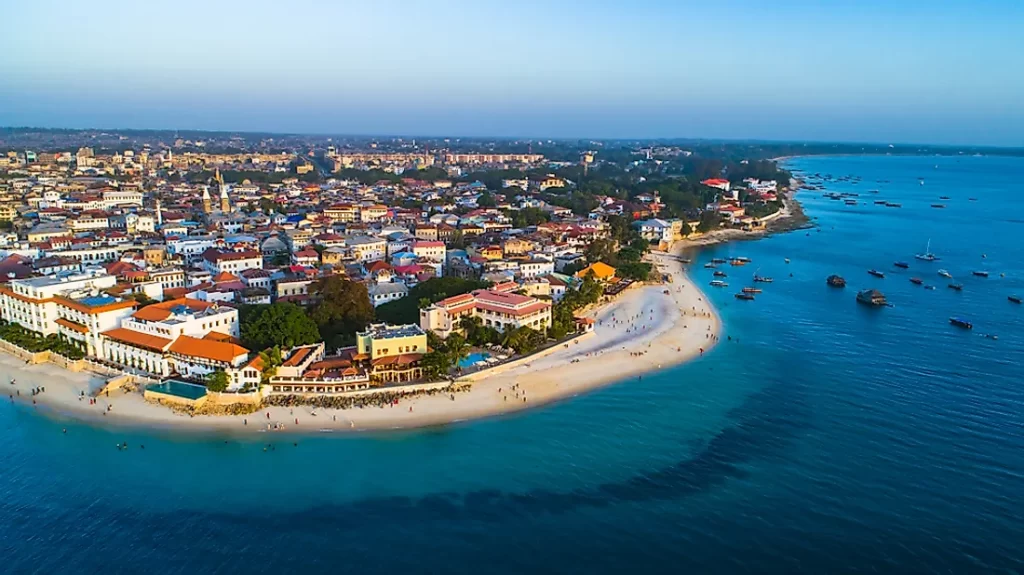Nestled along the eastern coast of Africa, Tanzania boasts a picturesque coastline that stretches over 1,400 kilometers, graced by pristine beaches, bustling ports, and vibrant communities.
However, this coastal beauty is under threat. Rising sea levels, a consequence of global climate change, pose a significant challenge to Tanzania’s coastal regions.
The World Bank estimates that climate change will hit East Africa hard, forcing more than 10 million people to flee their homes by 2050. The coastal metropolis of Dar-es-Salaam is at risk. Five million residents, many of them poor, are living in a low-lying city surrounded by an ever-rising sea. But it’s not just the seawater.
Intense rainfall in Dar-es-Salaam is flooding entire neighborhoods each year. Water accumulates in the flat city, eroding the foundations of buildings. Even when residents expend all efforts keeping homes dry – sometimes permanently cementing the bottom-half of their front doors – the stagnant water erodes the outer walls and causes them to flake away.
Rising sea levels are a global phenomenon, primarily driven by two factors: the melting of polar ice caps and the expansion of seawater as it warms. For Tanzania, the implications are multifaceted:
- Erosion: Coastal erosion is accelerating, leading to the loss of valuable land. Iconic beaches, crucial for tourism, are disappearing.
- Salinization: Intrusion of saltwater into freshwater sources jeopardizes agriculture and drinking water supplies.
- Biodiversity Loss: Coastal and marine ecosystems, including mangroves and coral reefs, face existential threats, impacting fisheries and local livelihoods.
- Infrastructure: Vital infrastructure, including roads, ports, and settlements, is at risk, with potential economic repercussions.
Recognizing the looming crisis, Tanzania has initiated a multi-pronged approach. Collaborating with international organizations, Tanzania has set up monitoring stations to track sea-level changes, providing data crucial for future strategies.
Other strategies like protecting the mangroves are implimented, Mangroves act as natural barriers against rising seas. Efforts are underway to restore and expand Tanzania’s mangrove forests.
The Tanzanian government is integrating coastal challenges into national climate change strategies, ensuring a coordinated response. The UN Environment was alerted to the needs of Tanzanian coastal communities.
In collaboration with the United Nations Office for Project Services (UNOPS), they began building extensive sea walls along Tanzania’s coast, including over 2,400m of defense structures. The walls stop the shores from disintegrating and are scattered with scenic viewpoints for residents to enjoy.
While efforts are commendable, Tanzania faces significant hurdles in the fight against the rising sea levels:
- Funding: Comprehensive mitigation requires substantial funds, challenging for a developing nation like Tanzania.
- Rapid Urbanization: The rapid growth of coastal cities like Dar es Salaam exacerbates the problem, with increased construction and land pressure.
- Data Gaps: While monitoring has improved, there’s still a need for more granular, localized data to tailor strategies effectively.
Tanzania’s battle is not isolated. It’s a reflection of a global challenge faced by coastal nations worldwide. International collaboration, therefore, becomes paramount.
Sharing knowledge, technology, and resources can amplify individual efforts. Tanzania has actively sought international partnerships, participating in global dialogues, and tapping into funds dedicated to climate change mitigation.
For Tanzania, the future involves a blend of adaptation and mitigation such as Technological Solutions including exploring technologies like sea walls, tidal barriers, and innovative urban planning can offer tangible solutions.
Ecosystem Restoration, beyond mangroves, restoring coral reefs and seagrass beds can bolster natural defenses, Also providing awareness and Education so as a well-informed public can drive change from the ground up, making community engagement crucial.
Tanzania’s coastal challenge is a testament to the broader implications of global climate change. It’s a narrative of resilience, innovation, and determination. For experts, it offers insights into the complexities of coastal management in the face of rising seas.
For general readers, it’s a story of a nation’s unwavering commitment to safeguarding its natural heritage. As Tanzania navigates these turbulent waters, it serves as a beacon for coastal nations worldwide, exemplifying the spirit of collective action and hope.
Also, take your time to read Climate Change: Tanzania’s Rigorous Path to a Sustainable Future.

